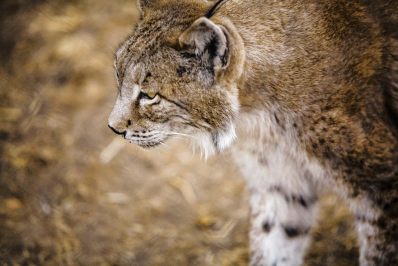Modal verbs: lynx
The Grammar Bit!
Read the three sentences opposite. They each contain a modal verb (bold). A modal verb is a special type of helping verb that adds meaning to the main verb in the sentence.
One the main functions of a modal verb is to show the degree of possibility or likelihood of something happening. The most common modal verbs that perform this function are will, would, should, could, may, can, shall, ought to, must and might. Many of these modal verbs have a negative form. eg. couldn’t /could not, can’t/cannot etc.
You can add even greater meaning to the modal verb by combining it with a modal adverb. Some common modal adverbs (underlined) are perhaps, surely, probably, possibly, certainly, always and never.
With your talk partner, see if you can replace the modal verb in each sentence with a suitable alternative from the list above.
Scintillating Sentences
1) You can’t possibly mistake an Iberian lynx for a domestic cat because it is about twice the size and has a short, stubby tail.
2) The wood and scrubland habitat of the Iberian lynx must definitely be protected at all costs.
3) Having just found fresh tracks and fresh droppings, the camera crew should have more success finding the elusive Iberian lynx.

“I do hope the lynx on this site are working? Now, where’s that rabbit?”

 Sign in
Sign in

